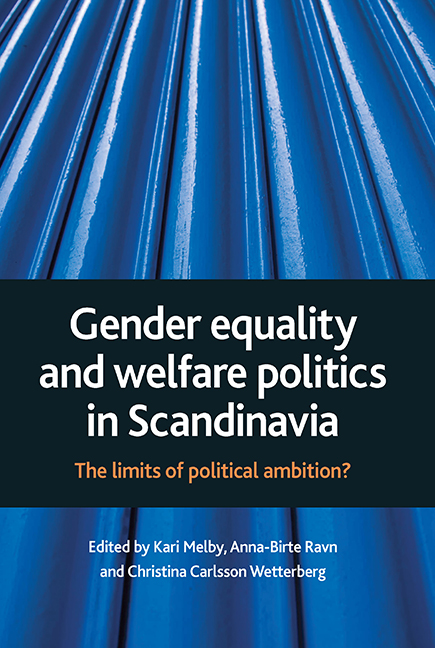Book contents
- Frontmatter
- Contents
- List of tables
- Preface
- Notes on contributors
- A Nordic model of gender equality? Introduction
- Part One Meanings of gender equality in Scandinavian welfare policy
- Part Two Current challenges: competing discourses on gender equality
- Postscript Gender, citizenship and social justice in the Nordic welfare states: a view from the outside
- Postscript Future research on gender equality in the Scandinavian countries
- Appendix Tables 1-10
- Index
three - Married women’s right to pay taxes: debates on gender, economic citizenship and tax law reform in Denmark, 1945–83
Published online by Cambridge University Press: 21 January 2022
- Frontmatter
- Contents
- List of tables
- Preface
- Notes on contributors
- A Nordic model of gender equality? Introduction
- Part One Meanings of gender equality in Scandinavian welfare policy
- Part Two Current challenges: competing discourses on gender equality
- Postscript Gender, citizenship and social justice in the Nordic welfare states: a view from the outside
- Postscript Future research on gender equality in the Scandinavian countries
- Appendix Tables 1-10
- Index
Summary
According to our present law, a woman who marries in the technical terms of taxation ceases to be an independent person; she becomes a kind of accessory to her husband. … Let me just mention my own example. I am a lawyer and my husband is a composer. In spite of that, he is the one who must state my income and capital as well as his own, and he is the one responsible for the truth of the statement. As a lawyer I have to keep books which also contain information on the income of my clients …; these are documents which according to my professional secrecy I cannot show to others. So, my husband does not have the right to control that the figures I give him are correct; but nevertheless he will get a fine or punishment, if my information is not correct. On the other hand, I cannot ensure that what he writes in the tax form is true … I have no right to demand to see the completed tax form, nor do I have the right to sign it. (Saunte, 1951)
Edel Saunte specialised in family law and functioned as barrister in the Danish High Courts. She was chair of the Danish Women's Society 1936–41, and she was a member of the Social Democratic Party. When she wrote her 1951 article in the social democratic women's magazine, Frie Kvinder, cited above, two official commission reports, appearing in 1948 and 1950, had unanimously recommended the preservation of the gendered tax system. But in spite of Saunte's pointing out the irrationalities and injustices of the system, she did not argue for its total abolition. She advocated individualisation of taxes in regard to legal responsibilities, but preservation of the principle of joint taxation of spouses. The question is, why?
Joint taxation of spouses and the status of the husband as head of the household was part of the first income and capital tax law in Denmark, enacted in 1903. Moreover, a revised tax law in 1922 assigned to the married man the status of family provider – in outright contradiction to the 1925 Marriage Act, which formally equalised spouses and stated the mutual obligation of wife and husband to provide for the family.
- Type
- Chapter
- Information
- Gender Equality and Welfare Politics in ScandinaviaThe Limits of Political Ambition?, pp. 63 - 84Publisher: Bristol University PressPrint publication year: 2008
- 2
- Cited by



